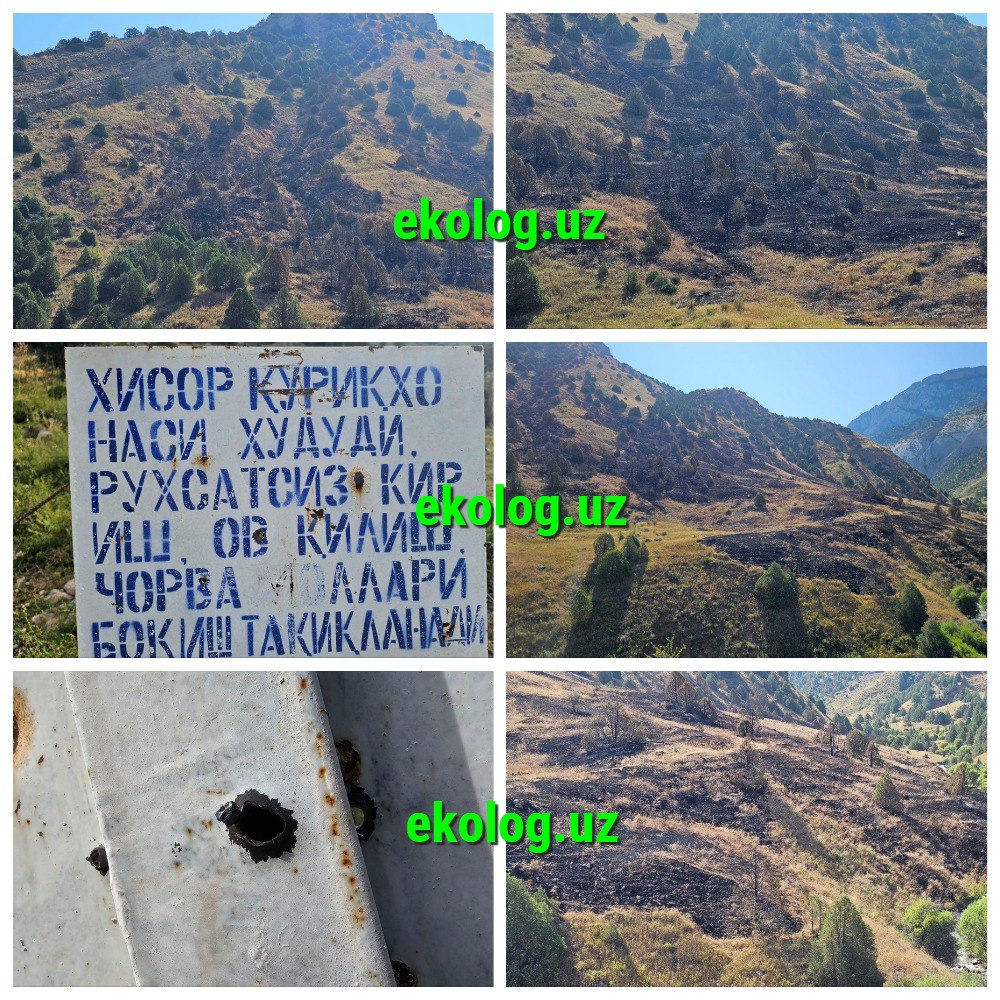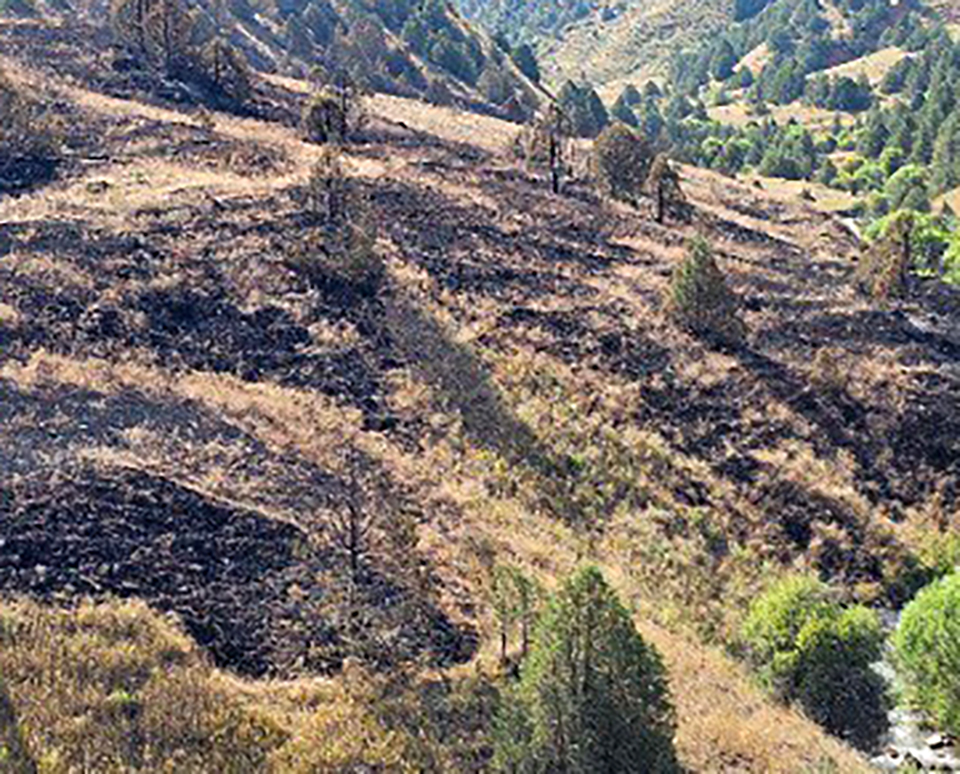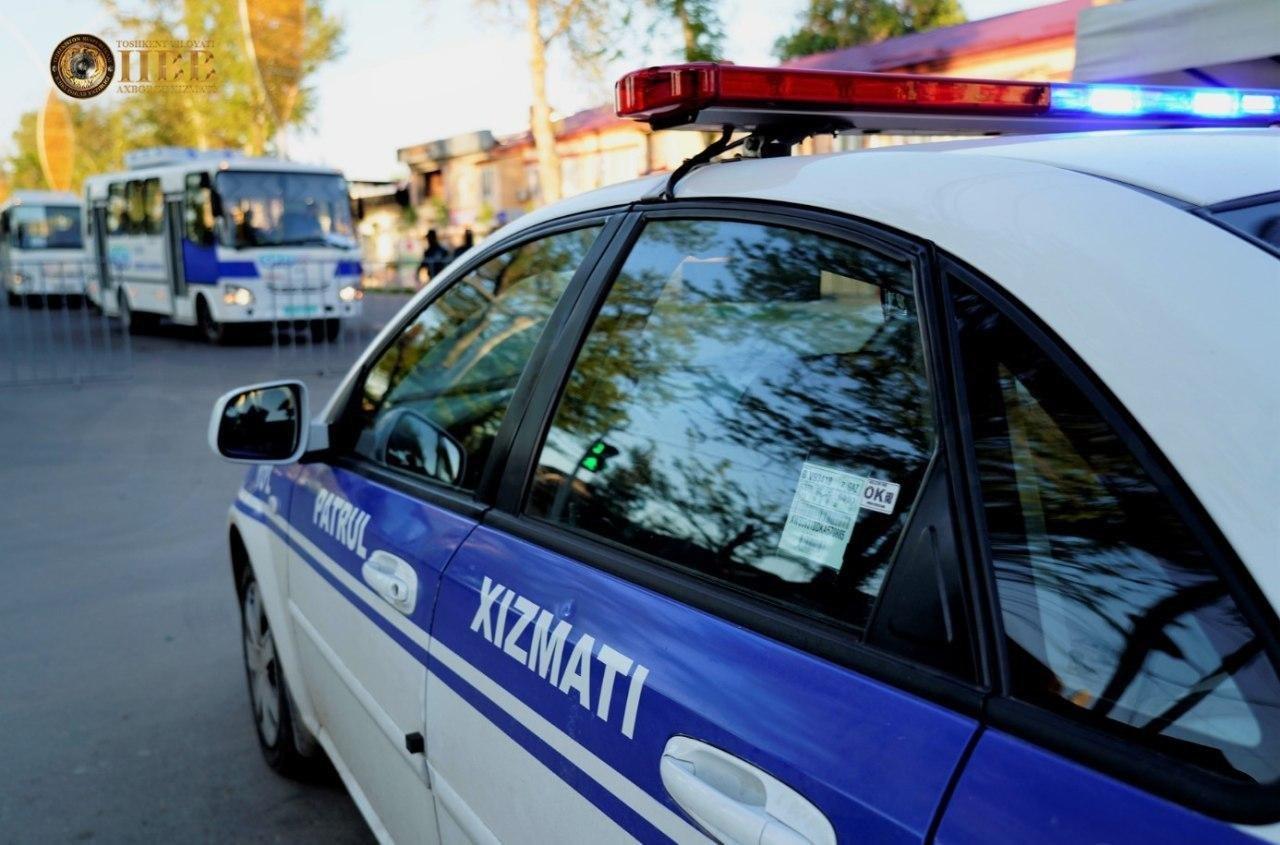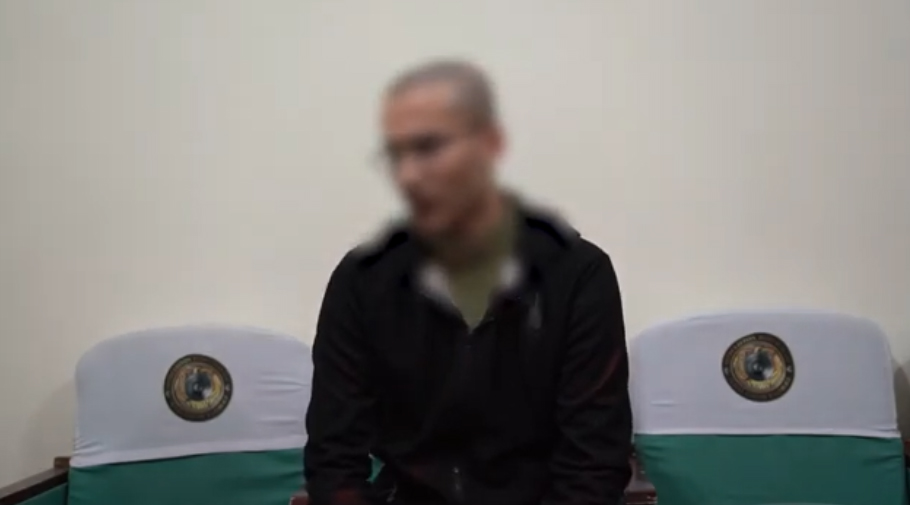This article is also available in:
Русский (Russian)
Uzbek
A fire broke out in the “Kyzylsuv” section of the Gissar State Reserve, located in the Kashkadarya region, which is one of the largest protected natural areas in Central Asia. As a result, plants listed in the Red Book of Uzbekistan, including more than 200 Zarafshan junipers, were damaged, along with many objects of the wild animal world.
This was reported by the specialized environmental Telegram channel Ekolog.uz, which posted a message from a person familiar with the situation.

According to him, the fire occurred several days ago, but no one was informed about it. More than 200 valuable Zarafshan junipers were burned due to the fire. Additionally, due to constant poaching and sheep grazing, there are almost no wild animals left in the reserve. They all run away from people.
“We demand to hold accountable the officials of the Gissar Reserve who are responsible for the fire. The fire may have been set intentionally. Because there is a large river and one tributary here. However, no efforts were made to extinguish the fire,” the authors of the Telegram channel noted.
Cases of illegal hunting in the Gissar Reserve are not new. In February this year, in the protected area of the reserve, a freshly cut boar’s head and mountain goat horns were found 500 meters from a herd of mountain goats. The poachers were not found. Moreover, signs installed to mark the territory of the reserve were pierced by bullets from a hunting rifle and knocked down. Is this how a reserve should be protected? Who will compensate for the damage caused to the unique national heritage – nature, which suffers from poaching, destroying its flora and fauna? How many plant species were on the burned territory? Who set the fire? What damage was done to nature? There are many questions…
We will wait for a response from the Department of Protected Natural Areas of the Ministry of Ecology, Environmental Protection, and Climate Change.
The text has been translated by AI. For more accurate information, please refer to the Russian version of the article.











